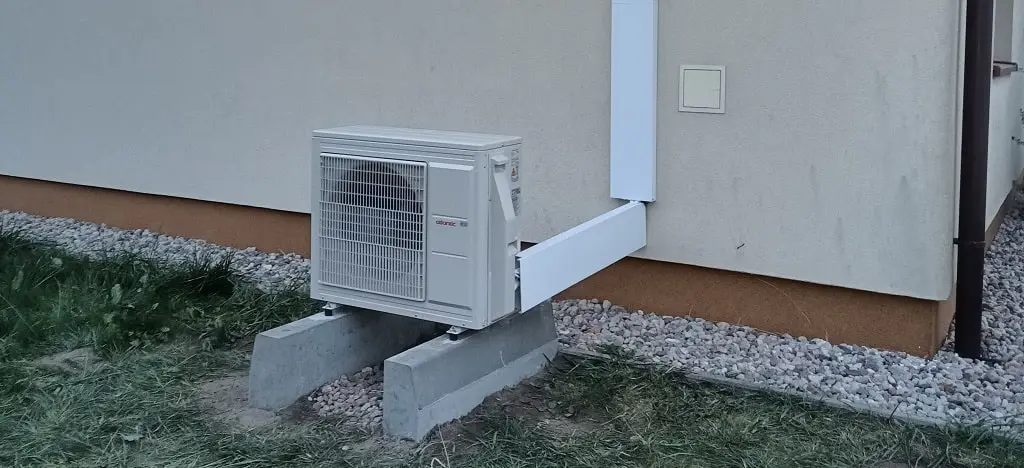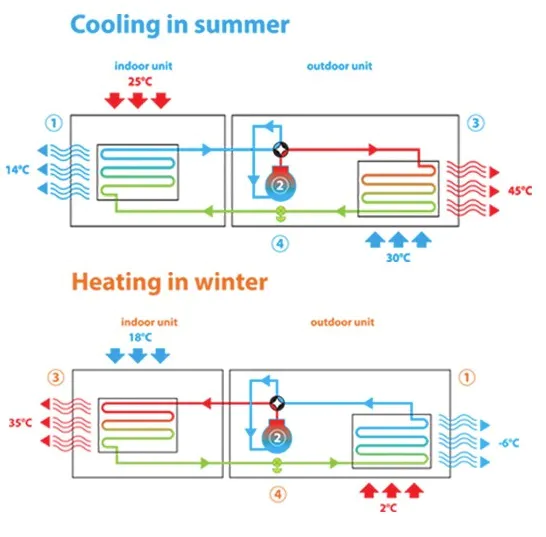
Heat pumps have become one of the most commonly chosen solutions for heating installations. Thanks to their high energy efficiency, they allow buildings to produce heat efficiently. However, many people still wonder how much energy a heat pump actually consumes and whether it is an economical solution. In this article, we take a closer look at this topic
A heat pump is a device that uses the principle of transferring heat from one source to another by means of mechanical work. The pump takes heat energy from a lower heat source (air, ground or water) and transfers it to the building for the heating system
Read more about the principle of a heat pump

Energy efficiency is a measure of how efficiently a unit converts electricity into heat or cooling. It is expressed as a coefficient of energy efficiency (COP). The COP value indicates how many units of heat or cooling a heat pump generates for each unit of electricity it uses. The higher the COP value, the more efficientthe heat pump
It should be noted that the COP is quoted by the manufacturer based on laboratory tests and may vary depending on the model and operating conditions. It is advisable to go for the unit with the highest possible COP when choosing a heat pump, but also to consider other factors that affect its efficiency
The most important factors affecting the efficiency of a heat pump are
Estimated annual energy consumption for buildings with the following parameters are shown below
| Volume to be heated | 150 m2 | 150 m2 | 150 m2 | 150 m2 |
| Heat exchanger | radiators | radiators | underfloor | 50%/50% |
| Wall insulation | 10 cm
(white polystyrene foam) |
20 cm
(white polystyrene foam) |
20 cm
(white polystyrene foam) |
10 cm
(white polystyrene foam) |
| Attic insulation | 15 cm
(wool) |
30 cm
(wool) |
30 cm
(Wool) |
15 cm
(wool) |
| Type of windows | double-pane | triple-pane | triple-pane | double-pane |
| Recuperation | NO | YES | YES | NO |
| Energy consumption | 6000 kWh | 3500 kWh | 2692 kWh | 5294 kWh |
These calculations were made for Daikin air-to-water split heat pumps. These are pumps with an improved energy efficiency class. The building is located in Poland. It has 4 permanent residents. The calculations were made for a hot water temperature of 43° C. Each household member uses 30-50 litres of hot water per day
Before purchasing a heat pump, it is advisable to obtain detailed information from a pump installation specialist in order to accurately determine the actual needs and adapt the solution to the specific conditions. This is an extremely important step and enables you to choose an efficient, reliable system. If you need help selecting a heat pump, write to us!
How much energy does a heat pump use? Our answer: “IT DEPENDS” 😊! Many factors affect its energy efficiency. The key to achieving the highest possible efficiency is to choose the right model of heat pump and adapt it to the climate conditions and insulation of the building.
ul. marsz. Józefa Piłsudskiego 74/320
50-020 Wrocław, Polska
NIP: 8971903418
Jesteśmy na terenie całej Polski!
2026 © evolive.pl
Logowanie
Rejestracja